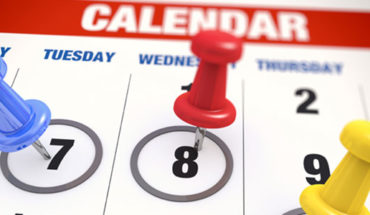The first question that everyone asks themselves, rather ask Google, when they start considering short-term rentals, and affordable housing is: “Is Airbnb illegal?”
Short-term rentals are easy to understand conceptually, but there are many legal issues you need to consider before Airbnb booking your first guest.
“Hotel” Tax Code Compliance
These taxes have been around since hotels/motels/traditional B&B’s, and rental platforms first started. It’s the price the lodging industry pays their local governments for allowing them to do business. The details and enforcement of these laws are what has been coming into question and making headlines.
Not so long ago, hotels had little to no competition, but since the birth of Airbnb, nearly anyone can host and provide lodging to a guest. If Airbnb is taking over market share and they are not collecting or paying the lodging taxes, then that means less tax revenue.
That is why politicians are scrambling to get a solid game plan on tax enforcement. They know that Airbnb is going to be around for a long time, so they better get hip with the times.
Actionable Advice: We suggest you contact your CPA and local Chamber of Commerce to ask what the code is in your area. If there is no code or low enforcement of the code, then create a cash reserve on the side to pay these taxes if they ever try to collect them at a future date. Better to be safe than stuck with a $4,000 tax bill you can’t pay!
Insurance
Running a business means you are putting yourself, your property and the public at risk of injury or loss. To help protect yourself and others, you should get insurance. Sometimes just basic homeowner’s or renter’s insurance will cover you, but you need to check with your insurance provider to confirm that sub-leasing is covered.
Another way to stay safe is to collect a security deposit from your guests on Airbnb be. Make sure you evaluate your rental unit quickly because you only have 48 hours after your guest checks out to make a claim.
Lastly, Airbnb does offer a $1,000,000 Host Guarantee which protects a host against damages above and beyond the amount of the security deposit. Best of all, it does cover you incase you have no security deposit– it just takes longer to get reimbursed.
Actionable Advice: Get a trustworthy insurance agent that knows your specific situation and let them take care of the rest. They know what riders and addenda you need to add to your policy (if any). If you are operating multiple rental units, you may want to set up an LLC to protect yourself and your investment property even further.
By doing this, you make your personal assets harder to get access to in the event of an extreme legal issue. You must show due care and have the proper insurance to protect yourself under the corporate veil.
Community, Neighborhood & Leases
Depending on where you live, you may need to abide by certain bylaws of your neighborhood. These procedures and rules were set in place when you moved in, but no one says they cannot be amended to create a win-win.
Whether you operate an Airbnb unit in San Francisco, New York City or wherever you need to make sure you are creating a sustainable community relationship. Some hosts are going full-force and not considering the impact that their business is making on the community, whether positive or negative.
Are you renting the unit you are hosting out of? If so, check with your landlord or management company to make sure it is legal to sublease your space. If you violate a lease term, they can possibly kick you out, and you will still have to pay the remaining lease payments. Ouch!
Actionable Advice: Be responsible, be a good person, and consider the opinion of your neighbors. Do not break any bylaws of your community, such as homeowner’s association rules. If the bylaws discourage all subleasing, then try to get them amended to find a compromise. Maybe you can get them changed to allow for up to 14 days per month.
Top Cities Where Airbnb is Legal or Illegal
There are many problems that the government and different state and city officials see arising with the growing popularity of Airbnb short-term rentals. With so many affordable Airbnb listings available in higher-demand areas, they are afraid that the sudden influx of tourists may disrupt an otherwise quiet community and instead of maintaining the peace and quiet, it is turning these areas into revolving hotel districts.
This is why due diligence is so important. Part of that due diligence process is becoming aware of where Airbnb properties are legal or illegal. You should also familiarize yourself with all local laws and other ordinances and regulations there are in residential neighborhoods you are considering.
New York
Is Airbnb legal in New York? This is one of the biggest tourist destinations in the United States, and they are definitely no stranger to Airbnb. Airbnb actually took the city to court in August of 2018 over a new law stating that Airbnb along with other home-sharing platforms would have to give the enforcement agency the names and addresses of Airbnb hosts every month.
The city claimed that a majority of the Airbnb listings were illegal. However, in January of 2019, a federal judge ended up blocking this law declaring it unconstitutional.
San Francisco
This city adopted a policy very similar to that of New York. In this city, Airbnb rentals are only permissible if the Airbnb hosts have a full-time and primary residence there. All vacation rentals are also capped at 90 days and each Airbnb host has to register their Airbnb properties with the city.
Santa Monica
Due to strict regulations being put on short-term rentals, more than 80 percent of Airbnb listings in Santa Monica were wiped out. The city claimed it was due to the higher real estate housing prices and the limited housing supply. These new regulations went into effect in June of 2015. If you list real estate on Airbnb, you have to live on the property during the Airbnb stay, register for a business license, and collect a 14 percent occupancy tax that is then payable to the city.
Berlin
Looking to go abroad? German officials have blamed Airbnb for increased rent and housing shortages. Therefore, a law was passed banning short-term rental sites like Airbnb in the city. This was overturned in 2018 and allowed property owners to rent out their property under certain conditions.
It’s Hard to Keep Up
No doubt, the landscape is changing quickly, almost daily, and it is hard to keep up. We can help!
Below is an up-to-date map of the short-term rental regulations around the world. Click the pin above a city and see what the current rules and regulations are.
Please share this post with all the Airbnb Hosts you know!

✔ How to avoid the BIG mistakes that most hosts make
✔ The secret weapon of all Top 1% Hosts
✔ The pricing strategy used by professionals
✔ How to consistently get gleaming 5-Star reviews
✔ How to free up your time without becoming a "robotic host"
This free training is brought to you by James Svetec an Airbnb Expert who has managed over $1M in bookings & Symon He, the founder of LearnBNB, the #1 Airbnb hosting education blog.
Learn about all of the secrets that professional hosts don't want you to know






Many small towns have outdated code books and say nothing about short term rentals. It’s difficult to find out if short term rentals are legal or not when small towns have not adapted to the 21st century sharing economy.
Will Airbnb work with local governments to get ordinances changed to allow home-sharing? My town here in Bucks County, PA has outdated code books and there was nothing in the books about home-sharing or short-term rentals. I’ve been doing Airbnb doing a year and a half but recently a neighbor ratted me out, for some unknown reason. The township refused to tell me. My guests are well-behaved and never bothered anyone. The town said I’m operating a tourist house in a residential zone. I never thought of home-sharing as a business. I and live in my home, it’s a single-family home not in an HOA. I rent just 1 room so there’s 1 guest family at a time. The township said I have to apply for a variance or cease operations. Under the advice of an attorney, I applied for the variance then faced the zoning board. The variance was denied because of neighbor opposition and I was told “tourist houses are allowed only in the commercial district”. I am not operating a tourist house because I live on the property and rent just 1 room. My guests share the same parts of the house that I do. We share the house like we are a family. I explained to the zoning board that so many other people do this, and I showed a map of the listings. After the zoning board meeting I was told I would receive a letter to appeal the denial. The zoning director said he will “go after the other listings and shut them down” but that never happened. They are still operating after 3 months. I wated 3 months for that letter to appeal at the county (the township said appeals are out of their hands) but it never came. Instead I receive a court summons from my township to appear at the municipal court. The citation said I “failed to abide by the zoning board’s decision to stop renting rooms via Airbnb”. As I said I never received the letter to appeal and I was told I could keep operating unless the appeal was denied. I never received a cease & desist letter at all during this time. I feel I am harassed and bullied. Home-sharing should be my right, and I depended on Airbnb to help me stay financially stable and keep my property. As long as my Airbnb never caused harm to any neighbors (I had no indication that guests were a nuisance) then it was none of the neighbor’s business.
Dears
I am a landlord and have fund my tenant to be renting my property. The ad has recently been taken down. This will result in a legal dispute and Air BnB will be a party to this legal occupational agreement.
I ask only that I receive the advertising records for the property as mentioned above which has a street address of 29 Vygie street in Cape Town (Bellair,bellville,northern suburbs)
Air BnB has a responsibility to ensure that the advertisers are legitimate.
Please provide the details.
Hello. Short-term rentals, the kind that cover airbnb rentals, are illegal in St. Petersburg, FL. A more civic-minded site would refuse to list properties in areas where short-term rentals are illegal.